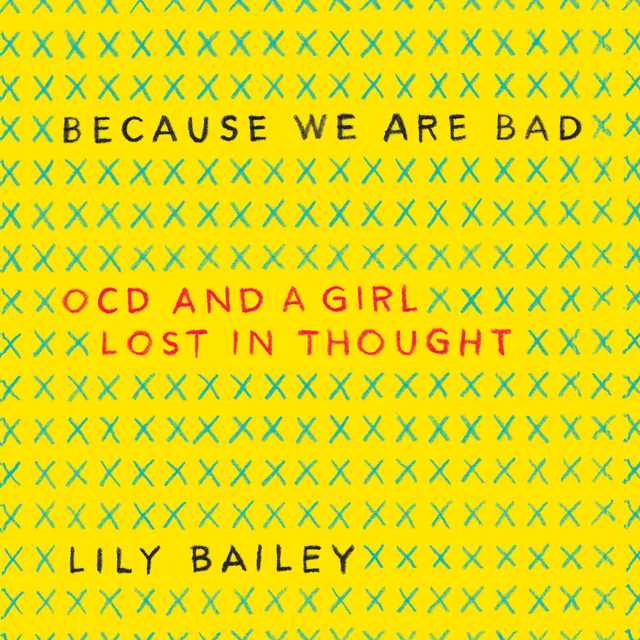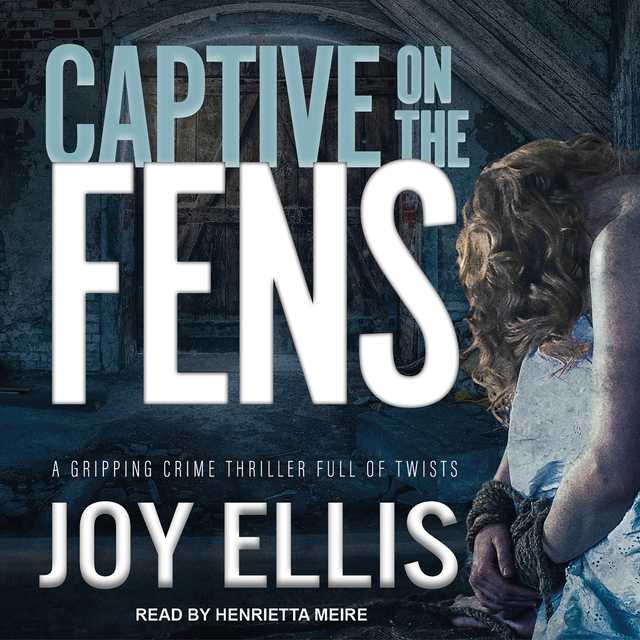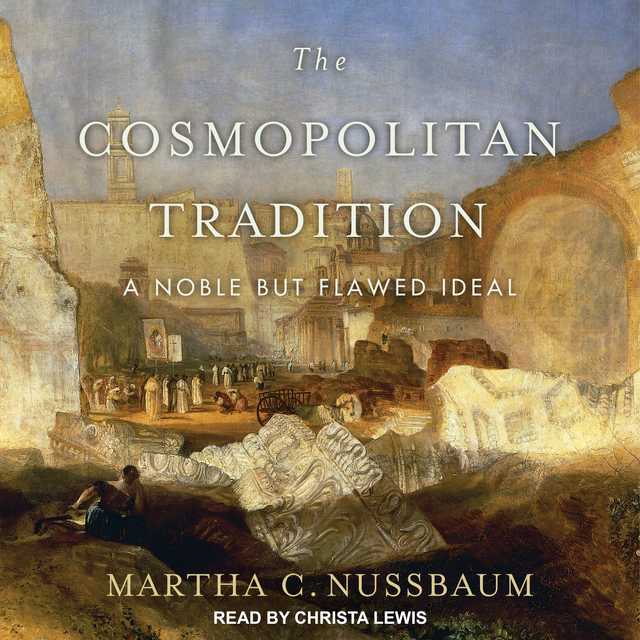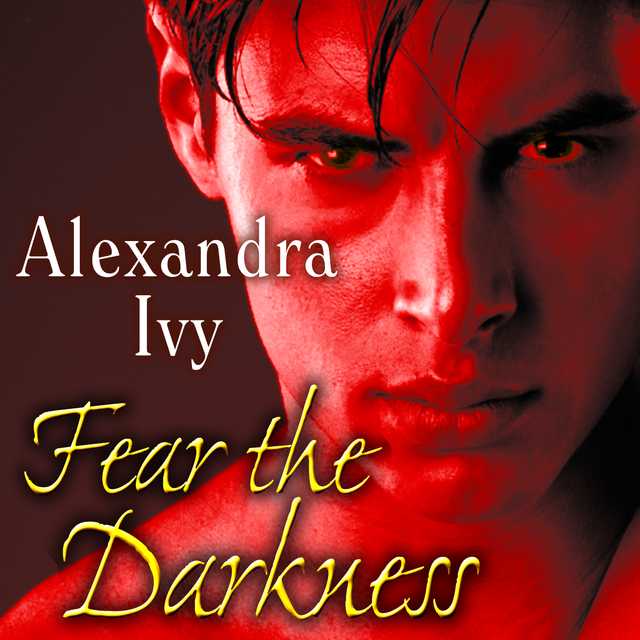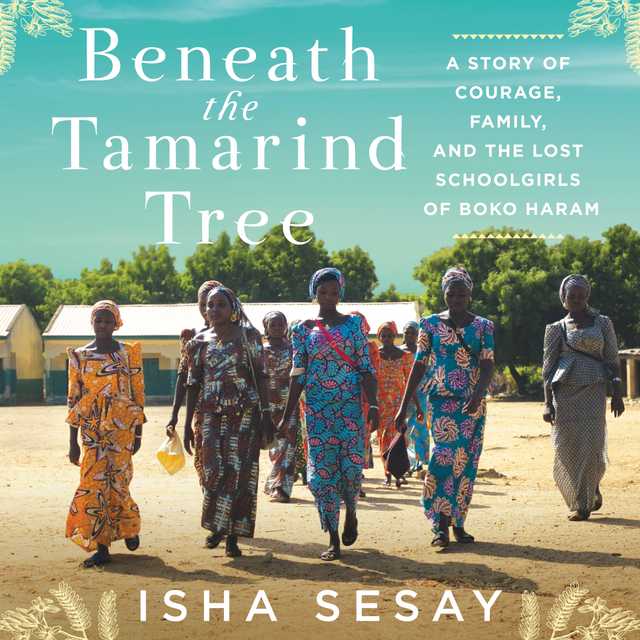Because We Are Bad Audiobook Summary
Written with the indelible power of Girl, Interrupted, Brain on Fire, and Reasons to Stay Alive, a lyrical, poignant memoir by a young woman about her childhood battle with debilitating obsessive compulsive disorder, and her hard-won journey to recovery.
By the age of thirteen, Lily Bailey was convinced she was bad. She had killed someone with a thought, spread untold disease, and ogled the bodies of other children. Only by performing an exhausting series of secret routines could she make up for what she’d done. But no matter how intricate or repetitive, no act of penance was ever enough.
Beautifully written and astonishingly intimate, Because We Are Bad recounts a childhood consumed by obsessive compulsive disorder. As a child, Bailey created a second personality inside herself–“I” became “we”–to help manifest compulsions that drove every minute of every day of her young life. Now she writes about the forces beneath her skin, and how they ordered, organized, and urged her forward. Lily charts her journey, from checking on her younger sister dozens of times a night, to “normalizing” herself at school among new friends as she grew older, and finally to her young adult years, learning–indeed, breaking through–to make a way for herself in a big, wide world that refuses to stay in check.
Charming and raw, harrowing and redemptive, Because We Are Bad is an illuminating and uplifting look into the mind and soul of an extraordinary young woman, and a startling portrait of OCD that allows us to see and understand this condition as never before.
Other Top Audiobooks
Because We Are Bad Audiobook Narrator
Lily Bailey is the narrator of Because We Are Bad audiobook that was written by Lily Bailey
Lily Bailey is a model and writer. She became a journalist in London in 2012, editing a news site and writing features and fashion articles for local publications including The Richmond Magazine and The Kingston Magazine. Lily lives in London with her dog, Rocky.
About the Author(s) of Because We Are Bad
Lily Bailey is the author of Because We Are Bad
More From the Same
- Publisher : HarperAudio
- Abraham
- American Gods [TV Tie-In]
- Dead Ringer
- House of Sand and Fog
- Prey
Because We Are Bad Full Details
| Narrator | Lily Bailey |
| Length | 5 hours 53 minutes |
| Author | Lily Bailey |
| Category | |
| Publisher | HarperAudio |
| Release date | April 03, 2018 |
| ISBN | 9780062799166 |
Subjects
The publisher of the Because We Are Bad is HarperAudio. includes the following subjects: The BISAC Subject Code is Mental Health, Psychology
Additional info
The publisher of the Because We Are Bad is HarperAudio. The imprint is HarperAudio. It is supplied by HarperAudio. The ISBN-13 is 9780062799166.
Global Availability
This book is only available in the United States.
Goodreads Reviews
Lisa
October 03, 2017
In the midst of my own "bad time" this is exactly what I needed. So many of Lily's experiences mirror my own so exactly. She gives me hope.
Kressel
May 16, 2018
Someone in my life has OCD, so you will be seeing more of these OCD memoirs in my feed. As a memoir, this was a good one; the author brings the reader right into the obsessions ruling her life. Hers were all about social faux pas, though, and not contamination fears, which is the variety of OCD I’m dealing with. But as I said, the picture she paints of her intrusive thoughts and her belief in her own “badness” is disturbingly vivid. She’s equally detailed and vivid with the various kinds of therapy she tried – from medication, to hospitalization, to a plain old support group. Best of all, the book has a happy ending. For people like me who might be drawn to an OCD memoir because a loved one is suffering from the disorder, please recognize that you won’t find a cure in someone else’s memoir. The best you can get is a better understanding of what your loved one is going through. It may not be the ideal outcome, but it’s definitely a start. Good luck on your journey!
Lily S.
February 16, 2018
I finished Bailey's book two days ago but since I had so much going on I had some time to gather my thoughts about it.Overall I'd give it 4. 5 stars. Lily's been having problems from a very young age. She constantly thinks she's bad and worried she might have hurt people. As she ages her worries, obsessions and compulsions to control then get worse. Bailey tells the story of her disorder, her way to recovery talking honestly about her relapses.It's a very special book because it's written in a beautifully raw and honest way. It's not a professional clinical picture (why would it be) rather it's a portrait of the experience of the disorder. At times it was even tiring to read about it so it's not difficult to imagine how difficult it was for her doing it all day. Reading it felt like being in Lily's head. The description of her anxieties, her actions that were considered to be bad and the meticulous way she went through them provided the suffocating feeling of living with OCD. From a professional perspective it was interesting to see how she sees herself. Sometimes she seems to be very reflective of her condition (especially when she remembers her childhood) but as the memoir gets closer to the present the reflective capacity seems to be lower which might be because it's still needs to be worked through.There are a few things that I didn't like. Sometimes Bailey skipped too much in time leaving me wondering what happened there. Some events in her life that might have had a casual relationship with her disorder only mentioned once or twice. And I definitely wanted to read more about her parents.Overall I think we need books like this because they bring closer the experience of a mental disorder to the general population. I recommend it to everyone and applaud the writer for having the courage to write a book about her most intimate struggles.
Calla Reviews
February 06, 2023
You never know how ridiculous your OCD thoughts are till you view them through another lens. During the majority of the reading I wanted to laugh and cry. Laugh at the absurdity of the thoughts and cry because I have had similar if not the same and was/am just as devastated each time. The book for me started off a bit slow but it does rev up. Most OCD sufferers when they write books tend to end on a high note of getting treatment and getting better but I do so wish someone would write a follow up book showing what treatment actually looks like on a day to day basis. That its not simply a ,I have treatment therefore I got better. I want them to talk about the bad days where they are completely swamped and OCD has once again taken over and how the next day the start a new. Lily did a really good job with this book. It was honest and I thank her for it. Sometimes when you have a disorder it does feel better to know that other people have it and they are still living their best lives. It provides hope. Especially with such a rare disorder.
Katy
May 14, 2016
Matt Haig's honest and uplifting look at his own depression last year touched a nerve of many. This year, I think I'll put my best on Lily Bailey's personal journey through a lifetime of Obsessive Compulsive Disorder (OCD) as non-fiction's best mental health confession.I've read very few fictional representations of OCD in the past (Into the Darkest Corner stands out in my memory), and certainly never with an adolescent at the heart of the story.Lily Bailey hear describes with no holds barred her own experiences from childhood, her teenage years and into her adult life, the ups and downs of her illness. The most shocking aspect for me was how serious it could be for someone so young. To spend hours, day and night, mulling over, worrying over her day's wrongs and faults; to categorise and order; to berate herself for seemingly normal behaviours that she saw as shameful, disgraceful, immoral - I've never understood the darkest reaches of what OCD must do to a person.'Because We Are Bad' charts Lily's earliest memories of the development of her OCD, through to its ravages at school and university, her decision to seek help, and eventual breakthroughs. Her relationship with her therapist is especially well-documented, though I would have loved to have read more on her parents' perspective, on what they thought was going on with their daughter, on what they saw happening. It's Lily's story of course, and the author uses a voice that shows her as the first person, experiencing OCD, the present tense making it all the more shocking as we go through life with Lily, thinking and feeling what she does. It will make every reader feel guilt, guilt that they've probably at some point said "oh, I'm a bit OCD about that", when they watch LIly wash her hands 50 times a day, panic about leaving fingerprints on a fridge, run for hours and hours to escape the lists and letters in her head. Lily's OCD also has an unusual aspect - in childhood she refers to herself as 'we' - there is another voice and person inside her mind, almost a guilty conscience manifested in a second personality. This is quite frightening, she was only a child, but also very well-written as she refers to herself as a plural.For a debut writer (who has worked as a journalist), this is stunning writing really. I can only imagine how hard it must have been to tell this story so dispassionately yet truthfully.I would have liked to hear from Dr Finch, even in an afterword with a clinical synopsis of Lily's journey, to hear the medical side of an OCD story, to complement Lily's own words. There is more story to tell, I felt, and I wanted to know all of it.You will find humour here, an intelligent and plucky woman to empathise with, and a story that will help dispel common myths and rumours about a truly all-consuming condition. I hope to read more from Ms Bailey (and Rocky) in the future.With thanks to the author for the paper copy, provided for review purposes.
Caitlin
October 13, 2017
As someone who has studied psychology, one of my pet peeves is when people make light of disorders - such as saying they have OCD when really, they just like things to be symmetrical or don't like the odd teaspoon left in the sink. It's rare when someone says, "Oh, I'm just really OCD" they mean they haven't been able to leave the house for hours due the sheer terror that should they neglect to undergo the full cycle of necessary behaviours something awful will happen to the very people they love.I heard Lily Bailey interviewed as she promoted the book here in Australia, and through the interview I heard an articulate and intelligent person struck down with a shocking and life-impacting problem. However within a short interview it was difficult to really understand behaviours and thought processes that are, to begin with, difficult to really understand anyway.Throughout the book you get this groaning sense of young years wasted as Bailey is captive to thought processes that are so powerful, uncontrollable and destructive. It is a little unnerving throughout that she writes about herself in the plural (as the illness co-exists with her) but in some ways I feel this probably helps to give distance and a sense that this is not her, the Lily that exists now, that is going through this.I think what makes Bailey's memoir so different to others on the market I feel is her background in journalism makes it highly readable, but also that she hasn't necessarily written the book as therapy in itself, so she focuses on communicating her story to an audience, rather than just describing what she went through (which is what some similar books tend to do, and come off as whining, less empowering or focused on excessive details.)I think a good measure of a book about psychological issues is whether it leaves the reader slightly in doubt whether they themselves are that completely removed from the experiences - and in this it's a scarily relatable story that should hopefully dispel some misconceptions, or at least some minimising of the impact on a young life sidelined by a terrible disorder.
Hana
April 03, 2018
4.5((This review will be short because I'm flippin' speechless))I have just finished reading this, and I am in awe...I read it in one sitting. Lily writes beautifully, and honestly, and I couldn't tear my eyes off my Kindle screen. This book filled me with the same deep sadness that The Bell Jar by Sylvia Plath did. Just heart-rending.When the blurb talks about Lily's debilitating OCD, it isn't exaggerating. Some parts of this book were really hard to read because Lily was in such obvious pain.That makes the ending that much more amazing to read. This book. Just. Wow. I can't even. Thank you for sharing this, Lily Bailey. It's beautiful. Thanks to the publishers & Edelweiss for an ARC of this book in exchange for an honest review.
Natalie
March 11, 2017
Because We Are Bad is a devastating memoir where the author actually lived, breathed and believed the title. The book is a chronicle of Lily Bailey’s years spend living with obsessive compulsive disorder (OCD) from her initial diagnosis as a child through to becoming a young woman. The story is a relatable, first person account of the mental illness and it’s one that should resonate with people who have this disorder as well as helping to dispel some of the misconceptions that are out there.This book is reminiscent of Emily Reynold’s A Beginner’s Guide to Losing Your Mind. Both volumes are by young, English female journalists and they are honest accounts of their grapples with mental illness. Neither book attempts to romanticise the individual’s respective disorder, instead they attempt to remove the stigmas surrounding it with their brutally honest and forthright accounts.In Bailey’s case the story is told in the first person along with her complex alter ego (a manifestation of her illness). Bailey recalls the distresses she experienced from early childhood when she was concerned that her sister would come into harm or even die if she failed to check up on her. These ideas became obtrusive thoughts that were repeated to the point of becoming an elaborate system consisting of actual rituals. Lily spent a lot of time ruminating over negative thoughts. She would worry that she had poor personal hygiene and that people hated her or thought she was a pervert. She collected these ideas and constantly thought about the first letters of each word relating to these things. Bailey’s struggles escalated and became a silent battle that plagued her day and night to the point that it became a crippling disease.Because We Are Bad may be a raw and heart-breaking read but it’s also a hopeful one. Bailey is now a successful model and journalist and hopefully readers can take away and learn from the things that helped her. In Bailey’s case this was cognitive behaviour therapy, which included response prevention and exposure as well as medication and group therapy. Because We Are Bad shows the inner turbulent life of a vulnerable young woman who has OCD and it also proves that people do not need to be alone in their mental health struggles. By reading such accounts we can all have a more realistic view of what the individuals with these diseases experience so that we can all get real about mental illness and the way it impacts life.
Panda
September 16, 2020
When reviewers praise a book as "important and brave," I take this as a red flag, assuming that the book's ideological message is the only justification for its existence. However, even though I tend to bypass books that garner such overused, impersonal adjectives, this book truly is important and brave. It is important because it fills a gap in mental health literature, chronicling the daily life and immense sufferings of someone struggling with OCD. This disorder has many manifestations, many of which are invisible to the public, and because popular culture has misrepresented OCD so deeply, most people have no idea what it really is. As this author explains, OCD occurs when someone experiences intense, unrelenting intrusive thoughts and tries to neutralize them through a compulsive physical activity or mental reaction. In her case, she was obsessed with the fear of being "bad," and compulsively remembered, categorized, and reviewed her every action that struck her as antisocial, strange, or immoral in some way. The more she obsessed over her behavior and engaged with her compulsions, the worse her condition became, to the point where she attempted suicide and needed hospitalization. The personal nature of this book makes it far more gripping and revealing than a clinical exploration of the disorder, and it clarifies for a very confused world what OCD is and how it affects people, even though this is a particularly extreme case. This book is also brave, because Lily Bailey has the courage to tell us with no holds barred what life was actually like inside her head. Even when I journal about my OCD, I tend to be vague about some details, and I am NOT going to write a tell-all memoir about the intrusive thoughts that tortured me from ages twelve to nineteen. Ever since I learned that there was a medical explanation for my private hell, I have gone through life with the assurance that other people have similar experiences, but even though I have defeated and extensively researched my OCD, I still feel uncomfortable and inhibited when I talk about it. Lily Bailey is incredibly brave to write so vividly about her intrusive thoughts and her overwhelming fears of every form of badness, and I found it deeply comforting and reassuring to read about travails so similar to what I experienced.Because I know how much shame OCD can bring, I am amazed by this author's willingness to take complete strangers into the tortured inner workings of her mind. I recommend this book to anyone interested in learning about OCD or mental health in general, because it provides a medically sound and personally intimate account of this particular disorder. This book will illuminate a hidden aspect of human suffering from those who do not have the disorder, and it provides sympathy and understanding to those who have suffered from similar miseries. This book was not yet published when I overcame my OCD, but given how much I enjoyed it in the present, I know that it would have been even more instrumental in my life if it had been available to me earlier.
Amy
April 20, 2018
I just finished this book and am speechless. Parenting a child with OCD has given me insights into this disease, but this stunning memoir underscored just how debilitating and destructive this illness can be. The author is inspiring and resilient and shares her story with brutal honesty that is sometimes very hard to read. OCD is a mental illness that is often made fun of and grossly misunderstood. It is thought of by many to be a personality quirk and not a crippling mental illness. This book so poignantly shows how the disease completely overtakes people's lives. The author invites you into her shattered mind, but leaves you with hope in the end. I highly recommend this one.
Stew
November 25, 2016
A devastatingly honest account of living with OCD. There are a lot of misconceptions around the condition, some of which I held myself but this book has shed light on it. It is endearingly written with a dash of humour but it nonetheless faces the uglier side of OCD head on without sugar coating anything.I'd recommend this to anyone as the best way to gain insight into the reality of suffering with OCD, or any mental illness.
Katie/Doing Dewey
August 02, 2018
This memoir was so engaging and hard to put down, it felt a little voyeuristic. It made me feel less bad that the author clearly intended this to be an engaging read. The chapters were short and snappy. They often ended on a cliff hanger. I constantly wanted to find out what happened next and devoured this book in only two sittings. The author also wrote about her experiences in an evocative way. Not having shared her experience of having OCD, I felt she helped me understand better what that’s like. I never found her behavior inexplicable. She shared what she was feeling – fear for her little sister, for example – so vividly that I was right there with her. Something I thought was particularly effective was when she described a delusion as though at were real, only sharing with the reader that the events were imagined as she came to that realization herself.Note that in the next paragraph, there are spoilers about the tone of the ending. Feel free to skip.Blah, blah, giving you some time to run from the spoilers, since on my blog there no spoiler tags…Ok, here we go…(view spoiler)[Having recently read The Recovering by Leslie Jamison, I couldn’t help but notice that this was a recovery memoir. Although the author does indicate that she still has some bad days, in general, she leaves us on a very positive note. I can’t say that bothered me. It was obviously the ending I hoped for, but it also seemed believable. I hope she’s not painting an overly positive picture to give the reader a sense of closure, because her memoir certainly left me rooting for her. The ending was also quite moving and is what pushed this up to a five star read for me. I picked this up on a bit of whim and I’m glad I did. I’d definitely recommend it. (hide spoiler)]This review first published at Doing Dewey.
Barbara
January 07, 2022
This book really shows how the OCD mind can work or not work, maybe. How it is still not understood by so called professionals. But I would say it is a very tough read and I think maybe not when you are first grappling with OCD. But hugely useful if you work or have family members with it, I now understand why my son turns up incredibly late and is mentally somewhere else. I enjoyed her description of her nursery school job; the dreadful monitor all learning and meet targets culture that has pervaded our educational system. And the Priory does not come out at all well, it seems its treatment is as negligent as an inpatient NHS unit but very much more expensive. I love her relationship with Dr Finch, her falling in love, transference, and then rejecting and when she meets the incompetent treatment in the Priory, returning and I would say succeeding as far as you can with OCD. There is clearly still far too much ignorance amongst professionals. But it is difficult because exposure therapy means pushing someone to go far beyond a comfort zone. If they are not on board, it is probably almost impossible. I loved her parents’ reactions, impatient father, ever there and presumably enormously stressed mother and the fact that one chance remark can become an all encompassing trigger. Dr Finch talks about how isolation exacerbates the condition, but when it is bad, you will be isolated and not able to take part in school or work. And lockdown has presumably added to this.
Most Popular Audiobooks
Frequently asked questions
Listening to audiobooks not only easy, it is also very convenient. You can listen to audiobooks on almost every device. From your laptop to your smart phone or even a smart speaker like Apple HomePod or even Alexa. Here’s how you can get started listening to audiobooks.
- 1. Download your favorite audiobook app such as Speechify.
- 2. Sign up for an account.
- 3. Browse the library for the best audiobooks and select the first one for free
- 4. Download the audiobook file to your device
- 5. Open the Speechify audiobook app and select the audiobook you want to listen to.
- 6. Adjust the playback speed and other settings to your preference.
- 7. Press play and enjoy!
While you can listen to the bestsellers on almost any device, and preferences may vary, generally smart phones are offer the most convenience factor. You could be working out, grocery shopping, or even watching your dog in the dog park on a Saturday morning.
However, most audiobook apps work across multiple devices so you can pick up that riveting new Stephen King book you started at the dog park, back on your laptop when you get back home.
Speechify is one of the best apps for audiobooks. The pricing structure is the most competitive in the market and the app is easy to use. It features the best sellers and award winning authors. Listen to your favorite books or discover new ones and listen to real voice actors read to you. Getting started is easy, the first book is free.
Research showcasing the brain health benefits of reading on a regular basis is wide-ranging and undeniable. However, research comparing the benefits of reading vs listening is much more sparse. According to professor of psychology and author Dr. Kristen Willeumier, though, there is good reason to believe that the reading experience provided by audiobooks offers many of the same brain benefits as reading a physical book.
Audiobooks are recordings of books that are read aloud by a professional voice actor. The recordings are typically available for purchase and download in digital formats such as MP3, WMA, or AAC. They can also be streamed from online services like Speechify, Audible, AppleBooks, or Spotify.
You simply download the app onto your smart phone, create your account, and in Speechify, you can choose your first book, from our vast library of best-sellers and classics, to read for free.
Audiobooks, like real books can add up over time. Here’s where you can listen to audiobooks for free. Speechify let’s you read your first best seller for free. Apart from that, we have a vast selection of free audiobooks that you can enjoy. Get the same rich experience no matter if the book was free or not.
It depends. Yes, there are free audiobooks and paid audiobooks. Speechify offers a blend of both!
It varies. The easiest way depends on a few things. The app and service you use, which device, and platform. Speechify is the easiest way to listen to audiobooks. Downloading the app is quick. It is not a large app and does not eat up space on your iPhone or Android device.
Listening to audiobooks on your smart phone, with Speechify, is the easiest way to listen to audiobooks.

